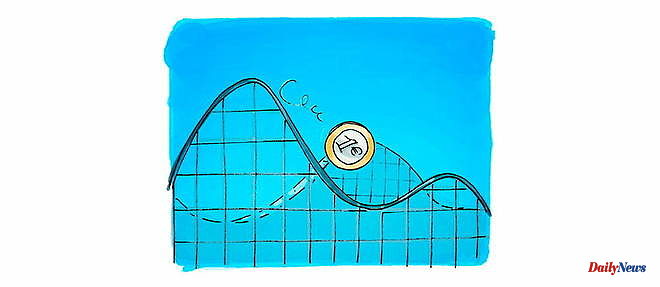On average, the French pay 1,195 euros per month for their constrained expenses, or 38% of their average net monthly income according to the fifth edition of the study carried out by the comparator Lesfurets and CSA Research. A budget that has increased by 100 euros in six months.
The increase is particularly penalizing for the most modest households, these incompressible expenses representing 86% of their income against 80% at the end of October 2022. And for couples with two children, the bill rises from 1,595 to 1,728 euros and represents 44 % of their monthly budget. In question, the electricity bill, which is rising by 6% per month, that of gas, by 13%, that of transport, by 7% due to the surge in fuel, and that of insurance (housing, car, health ), 8%.
Regionally, Île-de-France remains the place where the amount is the highest (1,306 euros per month) due to housing-related expenses. It is followed by Normandy (1,292 euros) and Centre-Val de Loire (1,246 euros).
As a result, nearly one in two French people cannot put money aside§
CONSTRAINED EXPENDITURE WHICH HAS EXPERIENCED SIGNIFICANT INCREASES
Taxation
Christophe Duprat, co-founder of real estate investment management specialist Qlower, lists five:
• Do not declare anything. In the event of omission to declare a property or of error, the owners will be liable to a fixed fine of 150 euros per undeclared premises. Knowing however that for the first year the tax authorities will be tolerant until December 31 to rectify the situation.
• Forgetting to include certain charges deductible from property income that are not communicated by the agency managing the property. Like property tax, landlord insurance, loan interest...
• Do not opt for the actual declaration when the expenses (works, taxes, etc.) exceed 30% of the rents for an empty rented property or 50% for an occupied rented property.
• Carry out work with undeclared craftsmen even though they are deductible when an invoice allows them to be justified. “For landlords with a tax bracket of 30% (17.2% social contributions), deducting this work amounts to reducing their tax on rental income by half of the expense. Doing without an invoice to “earn” 20% VAT means losing 30% of the amount of the work as a tax deduction, explains Christophe Duprat. Thus, for 1,000 euros of work with an invoice paid for 800 euros without an invoice, the expected saving of 200 euros erases a deductibility of 472 euros. The lessor finally loses 272 euros and the ten-year guarantee! »
• Do not renegotiate what is renegotiable such as loan insurance, comprehensive home insurance. “For 100,000 euros borrowed, switching from insurance costing 0.45% to 0.15% generates a saving of 6,000 euros for every 100,000 euros over the duration of the loan. »
SOTCK EXCHANGE
Is strong market performance causing you to be less cautious?
Quarterly results better than expected, economic statistics that do not bode well for a "hard" recession and the beginning of a decline in inflation continue to support the stock markets. But the rate of decline in inflation still seems very slow and insufficient in the eyes of central banks to influence their monetary policy. The ECB should at least continue its rate hikes. A more sustained and faster slowdown in activity is therefore not to be ruled out. The end of free money has not yet produced its full effects. Concerns about the health of US regional banks have not been lifted either. Not to mention the geopolitical risk. We therefore remain cautious in the short term. Stocks have limited upside potential. Nevertheless, any downturn can be an opportunity to strengthen for underinvested savers.
What would be the trigger?
A positive sign from central banks. We believe that when it does, probably at the end of the year or the beginning of the next, the rate cut could mark the start of a new bull cycle.
SP












